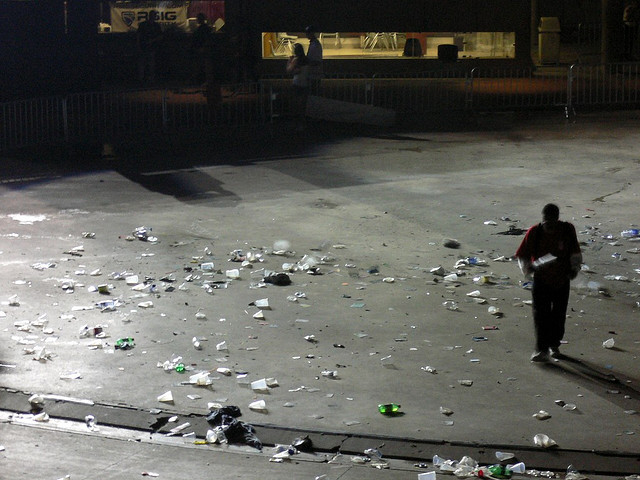Detroit's successes have a thousand parents; its struggles are orphans
For some reason, expectations for Detroit were high during Gov. Rick Snyder’s fourth State of the State address. With Detroit’s looming money problems, there was anticipation – or blind hope – that he would announce some financial relief to the city as a result of the state’s surplus. He didn’t, and it seems there won’t be. This really shouldn’t be a surprise to anyone who has long watched and heard the selective and convenient disconnect between the city and surrounding areas.
Whenever something good happens in Detroit, the city is conveniently viewed as a collective and shared resource, like the North American International Auto Show. People from all across the state embrace Detroit and the good things that go along with it. Residents of other cities claim to be a “Detroiter” because they happen to like the city, its potential and promise. Because Detroit is the largest city in the state, it somehow means or justifies that everyone can stake claim to it. This lasts until something goes wrong, or requires a sharing of resources that have been or could be otherwise allocated, like the proposed regional water authority.
Without any mention or allocation of support or a strategy for new jobs, roads repaired, pension contributions or even appropriate – and, some argue, owed – revenue sharing, Detroit remains on the donor list for solutions as a Republican-controlled legislature would certainly never be seen as supporting or directing resources to Detroit.
Crime, financial challenges, the dysfunctionality of city operations or any other less than perfect thing is immediately seen as “their” problem, and solely attributed to those who live and govern here.
There are those who don’t live here who have also contributed to the problems. Cars stolen and crimes committed elsewhere are dumped in Detroit; the city has been trashed after numerous big events, the debris left by those leaving the city to return to their homes in other communities, and by those who claiming to love the city, though not enough to move here.
It can’t be both ways. One can’t throw dirt and then complain about how dirty the city is. And for too long that is how it has been. Share the good, but take no blame for the bad.
Those who are sincere about the success of the state and city will work and be willing to share resources – financial and otherwise – for the collective and shared benefit. It can’t be “We love Detroit” until it is time to lend support to its repair or sustainability.
Watching this approach has made me wonder what it would be like if Detroit were to function like Grosse Pointe or Dearborn, and reserve use of its assets for residents only? Those cities limit use of their parks, libraries and other resources to their residents. What if Detroit were to do the same?
How realistic is it to drive on roads, play in parks, celebrate on streets, and enjoy venues and assets in a city where you otherwise have no interest or investment? Where claim is relative and limited to the good, while the bad is blamed on those who have stuck it out during the struggles?
Critics will say Detroit has proven itself incapable of caring for its resources and assets. The presence of an EM means we may never have the same opportunity to prove otherwise.
However, those who enjoy the benefits and resources of this or any city also have the responsibility of respecting it enough to help take care of it.
See what new members are saying about why they donated to Bridge Michigan:
- “In order for this information to be accurate and unbiased it must be underwritten by its readers, not by special interests.” - Larry S.
- “Not many other media sources report on the topics Bridge does.” - Susan B.
- “Your journalism is outstanding and rare these days.” - Mark S.
If you want to ensure the future of nonpartisan, nonprofit Michigan journalism, please become a member today. You, too, will be asked why you donated and maybe we'll feature your quote next time!


 Everybody loves a festival at Hart Plaza. The trash? Eh, someone else's problem. (Photo by Flickr user ario_; used under Creative Commons license)
Everybody loves a festival at Hart Plaza. The trash? Eh, someone else's problem. (Photo by Flickr user ario_; used under Creative Commons license)